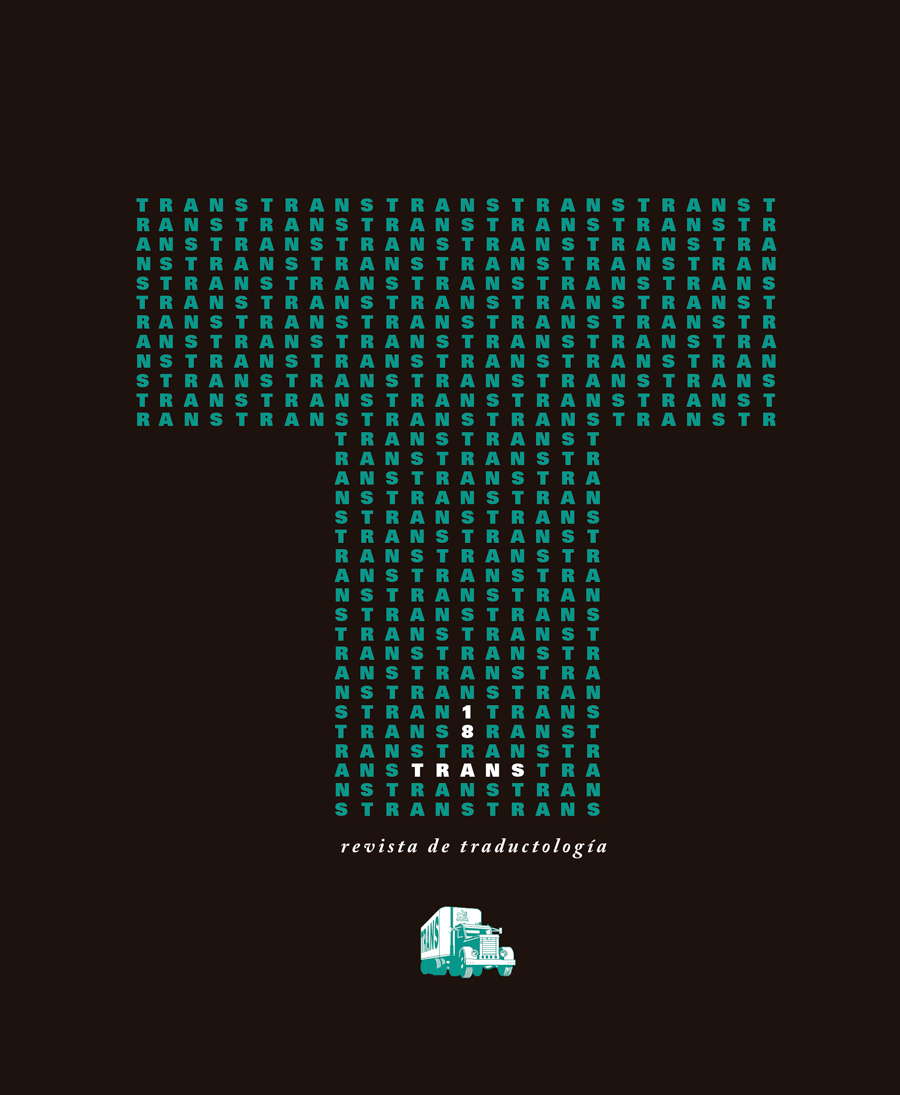Entrevista a Marta Sofía López Rodríguez, traductora de No Longer at Ease y Anthills of the Savannah de Chinua Achebe
DOI:
https://doi.org/10.24310/TRANS.2014.v0i18.3256Keywords:
Chinua Achebe, translation, african literature, language, english, Igbo, PidginAbstract
It is generally acknowledged that Chinua Achebe has become one of the most widely-read African authors on the international stage. Achebe, who has been referred to on many occasions as “The Father of African literature”, has not only been an important inspiration for different generations of African writers, but has also become the centre of many debates among numerous critics and intellectuals since his first novel, Things Fall Apart, was published in 1958. Although Things Fall Apart has been translated in Spain at different moments in time with different titles, his other novels have only recently (2010) been made available for Spanish readers. Taking into account Achebe’s importance for African literature, what does translating his work into Spanish actually entail? As Marta Sofía López explains, translating this Nigerian author into Spanish has been an honour and an interesting challenge given Achebe’s use of the English language: “in full communion with its ancestral home” (Achebe, 1965: 30), but “altered to suit its new African surroundings” (id.)Downloads
Metrics
Downloads
Published
How to Cite
Issue
Section
License
All contents published in TRANS. Revista de Traductología are protected under the Creative Commons Attribution-NonCommercial-ShareAlike 4.0 International (CC BY-NC-SA 4.0) license. All about this license is available in the following link: <http://creativecommons.org/licenses/by-nc-sa/4.0>
Users can copy, use, redistribute, share and exhibit publicly as long as:
- The original source and authorship of the material are cited (Journal, Publisher and URL of the work).
- It is not used for comercial purposes.
- The existence of the license and its especifications are mentioned.
- ShareAlike — If you remix, transform, or build upon the material, you must distribute your contributions under the same license as the original.
There are two sets of authors’ rights: moral and property rights. Moral rights are perpetual prerogatives, unrenounceable, not-transferable, unalienable, imprescriptible and inembargable. According to authors’ rights legislation, TRANS. Revista de Traductología recognizes and respects authors moral rights, as well as the ownership of property rights, which will be transferred to University of Malaga in open access.
The property rights are referred to the benefits that are gained by the use or the dissemination of works. TRANS. Revista de Traductología is published in an open access form and it is exclusively licenced by any means for doing or authorising distribution, dissemination, reproduction, , adaptation, translation or arrangement of works.
Authors are responsable for obtaining the necessary permission to use copyrighted images.












21.png)
